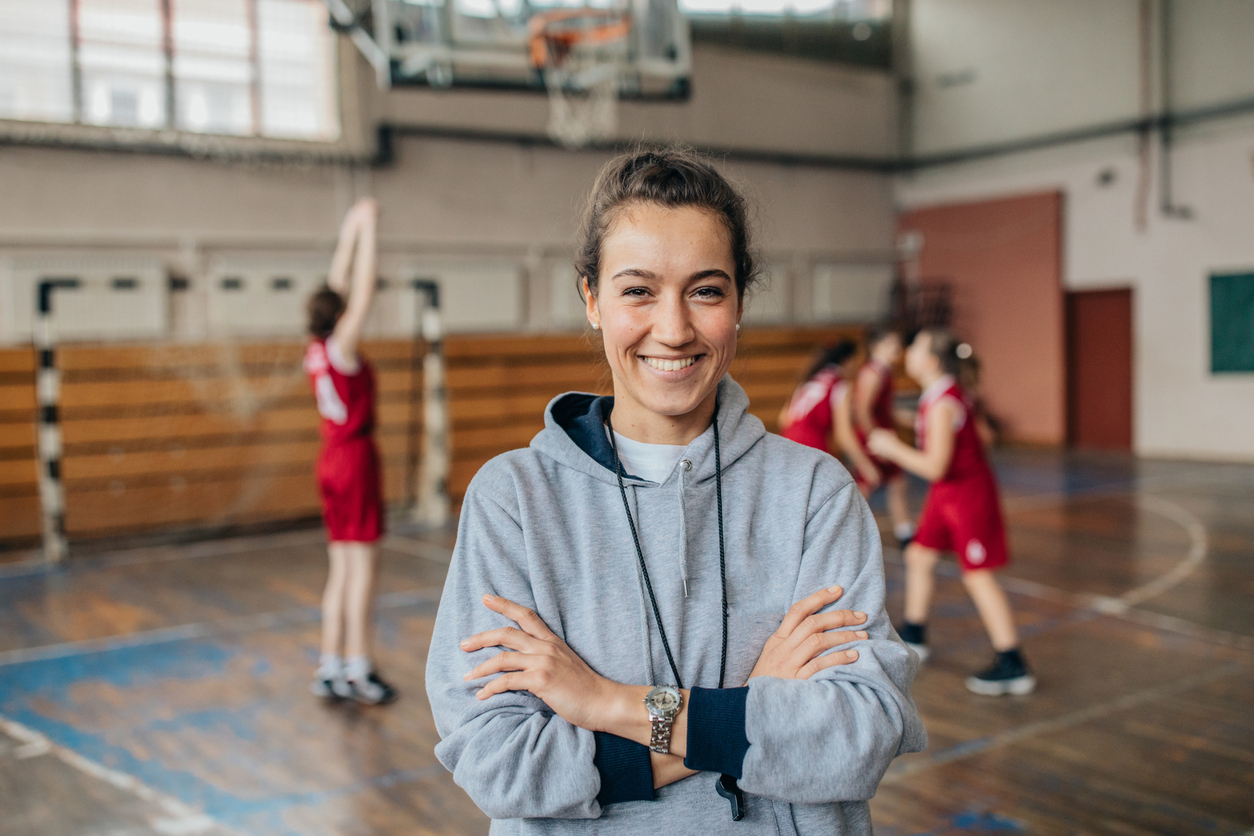The short answer is, well, many! The long answer? Keep reading!
If you’re passionate about a career in sport, sport coaching could be the perfect pathway into your dream career.
Why sport coaching?
Sport coaching is a field that’s rapidly expanding – both in terms of the different types of jobs and number of positions available.
You might be surprised by the breadth of roles you can consider with a background in sport coaching – but it makes sense. After all, beyond skills in the technical or tactical side of sport, Sport Coaching graduates are armed with a terrific set of transferable skills and knowledge that many different employers are seeking, including:
● leadership
● communication and presentation
● time and project management
● interpersonal, people management and team building
● decision making
● critical and analytical thinking
● problem solving
● mentoring, motivation and teaching
● cultural competency
But how do you build these skills and how can you use them?
If you spend five minutes looking at strength and conditioning courses or sports coaching courses online it’s easy to be overwhelmed.
One option is a Bachelor of Sports Coaching degree – which will help you develop an exceptionally versatile skill set that can lay the foundation for a fulfilling career in any number of fields.
What’s a Bachelor of Sports Coaching about?
ACPE offers two specialist Sport Coaching qualifications: the Bachelor of Sport Coaching (Strength & Conditioning) and the Bachelor of Sports Coaching (Management). Both courses offer a unique mix of coaching, sport science and business units, along with a variety of generic professional skills. Each also has a slightly different focus: the Strength and Conditioning degree focuses on developing strength and conditioning specialists, while the Management course focuses on developing your management expertise.
In both degrees, you’ll receive unparalleled access to industry leading experts and experiences, balancing the theory part of your studies with practical classes and industry placement opportunities, such as through our partnership with the Liverpool Football Club International Academy.
So it’s not just about the athletic side of sport?
Sure, in a Bachelor of Sports Coaching strength and conditioning knowledge form a major part of not only the curriculum but the skills you’ll need to succeed in your career. But strength and conditioning courses aren’t just about the physical side of the industry.
At ACPE, in addition to learning modern coaching, and strength and conditioning techniques, you’ll also learn about the management of the political, legislative, and administrative complexities increasingly encountered in the growing sports sector.
Where might you work?
Once you graduate with a Bachelor of Sports Coaching strength and conditioning and management aren’t the only career options available to you.
When you think “What can I do with my new sport coaching degree” the great news is that Sport Coaching graduates can work in many different sectors and roles.
ACPE graduates have found careers in everything from national to local sport organisations, community sports and recreation, government organisations, education and coaching, non-profit organisations, running private businesses, and more. Some even go onto further study in a similar or unrelated field – using the skills and knowledge they’ve picked up through their undergraduate degree.
Here are just some of the types of jobs you might be interested in pursuing once you’ve graduated with ACPE’s Bachelor of Sports Coaching.
● Coaching roles:
- Encourage, teach and inspire athletes through assistant, head or director roles ranging from youth or school levels to collegiate or club levels to professional competition.
● Sport coaching development officers:
- Help grow participation and skills of players, coaches, officials, administrators and the public through roles such as a community development worker, outdoor education manager, sport and leisure facility manager or events manager.
● Fitness and health roles:
- Help people young and old and of all skill levels with health, fitness and wellbeing through roles such as high performance manager, strength and conditioning coach, fitness instructor, personal trainer, sports therapist, dietitian, sport and exercise nutritionist or health promotion expert.
● Officiating:
- Keep the competition running smoothly as a match referee or other rules officials for various sporting codes.
● Sport administration:
- Look after the business and policy side of sport including through working in the management or front office of a professional sport team or national sport industry body, administration of a local or club team, or a government sport agency.
● Sport media:
- Help tell the stories of sport on and off the field through sport journalism and sport broadcasting/production.
● Sport technology roles:
- Help develop high-performance athletic wear or technology to measure and thus improve athletic performance as a sports technologist or engineer.
● Sport science and research:
- Help improve performance, mechanics and other cutting edge research through roles like exercise physiologist, sport psychologist, sport biomechanics or performance researcher.
● Or even something that seems a little further afield – but capitalises on some of the transferable skills we’ve mentioned up above:
- A professional or amateur athlete, emergency services worker, or even a stunt worker!
Find out more
With employment opportunities almost doubling for Sport Coaches and Specialist Managers, the future looks bright.
Discover where the Bachelor of Sports Coaching can take you by heading over to the course page for more information, or get in touch with our friendly ACPE team.
